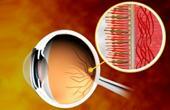Should I take eye vitamins?

Learn the suggestions of local pharmacies - and you will see dozens of preparations, as well as food supplements, which are commonly referred to as eye vitamins designed to maintain eye health, such as Okutiv, Xangold and Bright Eyes. Some of them contain lutein, zeaxanthin and vitamin C, as well as complexes of other nutrients. Although it is tempting to think that you can simply swallow a pill and thus ensure eye health, scientific research proves that the use of certain supplements, such as vitamin C, is effective in preventing the development of cataracts. You can strengthen the health of the eyes with the help of products and a huge number of antioxidants contained in them, such as lutein, zeaxanthin, nutrients and phyto-substances.
According to a study by the National Eye Institute, there is no scientific justification for the fact that taking food supplements containing lutein, for example, can reduce the risk of corneal opacity with age or the development of cataracts. In a study that lasts 12 years and covers more than 7 3 thousand women aged 45 years and over, those who consume multi-vitamins or individual supplements in the form of vitamins C, E or A do not reduce the risk of cataracts compared to those who,who does not use them.
In addition, vitamins can not always provide the body with substances that fight disease, in contrast to food. In fact, some studies have shown that increasing the dose only increased the risk of the disease. For example, in 1980, beta-carotene, one of the carotenoids, was promising in terms of reducing the risk of cancer and heart disease. But clinical studies have shown that these supplements had little or no effect on heart disease, and increased the risk of lung cancer in smokers. Despite this, if you decide to take eye supplements, consult a doctor.
At the same time, your family doctor may advise you to take a multivitamin to ensure that your diet contains enough nutrients. This becomes important with age, as the body becomes difficult to produce and use basic nutrients.
After 60 years, for example, the body loses the ability to produce vitamin D, necessary for the absorption of calcium, necessary to prevent osteoporosis and to control blood pressure.
As a result, it becomes simply necessary to provide the body with vitamin D from food or supplements, especially if you do not often go to the sun( sunlight contributes to the production of vitamin D in the body).However, if you take a vitamin supplement, instead of constantly taking multivitamins, you may experience a shortage of nutrients that the body requires.
If you drink vitamins for the eyes and at the same time consume regularly multivitamins, you can experience an excess of some nutrients, which can also be harmful to the body. Excessive intake of vitamin C, for example, can lead to stomach irritation and kidney stones.
There is also evidence that supplements with a vitamin A content in excess of 100% intake can be too heavy for those over 60, as the liver becomes unable to remove vitamins from the body.
Even folic acid, known for its ability to reduce the risk of heart disease, which is now being added to cereal products such as bread and flour, according to a nutrition program approved by the government, can compensate for the lack of vitamin B12 when consumed excessively.
If you drink multivitamins on the advice of a doctor, keep drinking, but if your ophthalmologist advises you to take vitamins for your eyes, be sure to tell him that you are already doing this to avoid supersaturation of the body, i.e. hypervitaminosis. Eat as much fruit and vegetables as possible. Include in your diet various plant foods, whole grains, fruits and vegetables. To enhance health, drink low-fat dairy products, eat lean meat and beans daily.
Yu. Saveleva "Methods of vision improvement"
